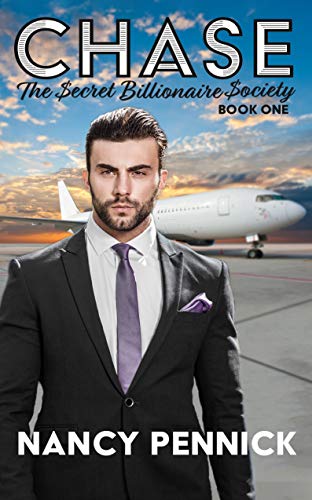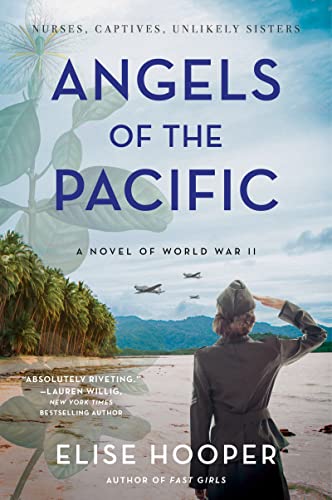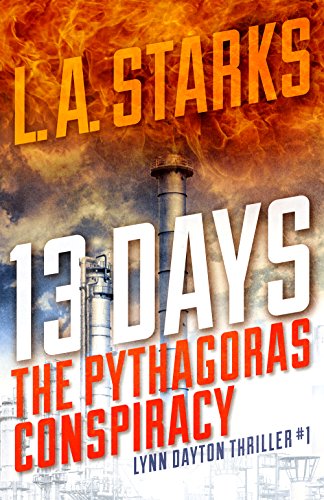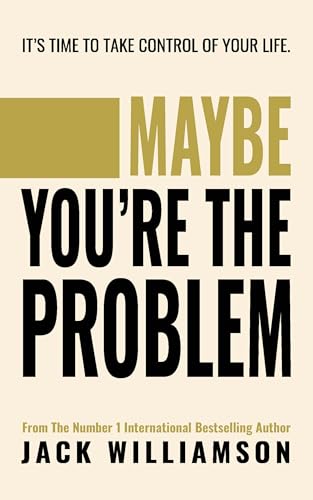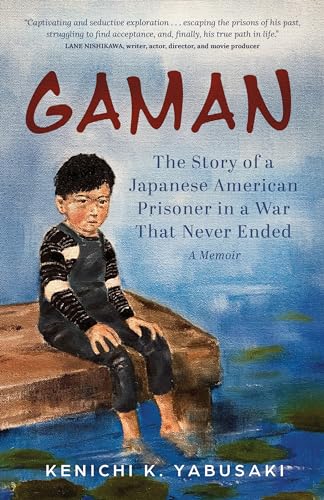On Friday we announced that J.L. Austgen’s Keyser Run is our Thriller of the Week and the sponsor of thousands of great bargains in the thriller, mystery, and suspense categories: over 200 free titles, over 600 quality 99-centers, and thousands more that you can read for free through the Kindle Lending Library if you have Amazon Prime!
Now we’re back to offer our weekly free Thriller excerpt:
Keyser Run (Evelyn Morgan)
by J.L. Austgen
Here’s the set-up:
And here, for your reading pleasure, is our free excerpt:
Prologue
He was the first man she’d ever killed, which wasn’t all that surprising since she was just a few months shy of her twentieth birthday. What was more surprising was her target. Because he wasn’t a victim, and that distinction was very important to her. He was young, charming, boyishly handsome with shoulder-length dirty blonde hair and a lopsided grin that always made her smile. Tall, too. He stood just over six feet. But all of that got pushed to the very back of her mind when his head filled her sight profile and she centered its crosshairs just above the base of his skull.
She picked her head up and peered over the black scope. In the distance she could see the snow covered plateau peaks of the Flattop Mountains, their rocky, tree-lined sides a rosy pink in the early morning light of dawn. She was hidden in a small stand of aspen littered with yellow leaves and thigh-high grasses. Her green eyes traced the visible divide between the meadow and the base of the hill in front of her. Gazing out across its breadth, she picked out the day-glow orange of a hunting vest four hundred yards away.
A sudden vision of his brown eyes, full of malice, staring down at her, filled her mind, and she crushed hers closed to try and block the image. But it only got worse. She could hear her own screams, faint and distant, crying for help, begging him to stop. She hated him for it. Loathed him. Despised everything about him. She wanted to kill him after he’d finished. But he left her there, laughing as he walked away. She withdrew into herself, unable to get up. When she came to, her first thought was that it hadn’t happened. He couldn’t have done it. She should let it go. But she couldn’t let it go. Couldn’t trust that the courts would take care of it. Couldn’t tell her father. Couldn’t trust anyone with the information.
But she could make him pay.
A sneer curled the right side of her face as she dropped her eye back down to the scope, dialed out the magnification, and picked his sandy blonde hair out of the hillside. She knew he loved to hunt, and she knew he’d be out here.
It wouldn’t be an easy shot, especially with the rising wind speed, but she was confident. The rifle was her favorite, a Remington 7mm Magnum with a black, synthetic stock and a silver-grey barrel. Zeroed at one hundred yards and lovingly maintained, she knew it would be over quickly. Too quickly, for him.
When he stopped in the middle of the meadow and scanned the far tree line, she was reminded of her mother’s boyfriends. There were several that had taken her hunting, though none really stuck around long enough to make a lasting impression. And there were some that just made her cringe. She shuddered at the memory. Taking a deep, calming breath, she willed her heart to slow and her muscles to relax. The sight picture stabilized and she brought the crosshairs back, centering them between his shoulder blades.
She adjusted the scope and focused. It was like someone flipped a switch. Her breathing stilled and her heart rate plummeted. As she looked down into the crosshairs, she recognized a very familiar picture. This was her target. In her sight. Milled, winded, and completely oblivious.
She took a deep breath and let it out very slowly. Her nerves no longer existed, her hands steadied, and the sight picture became rock solid, centered just below the base of his neck in the middle of his shoulder blades
She squeezed the trigger, her index finger gently contracting around its cold steel until she sensed, rather than felt, that familiar release. The rifle jumped into her shoulder, its report echoing loudly across the hills.
He collapsed like a ragdoll. One minute his back was squarely in her crosshairs, and in an instant it was gone. She cycled the rifle’s action, chambering another round, but she knew it wouldn’t be necessary. The half-hidden mass of day-glow orange crumpled in the grass told her all she needed to know.
With a grim determination, she safed the rifle and slowly began to belly crawl away.
1
He was used to the heat. The scorching, searing, sweltering fire that blazed and burned everything it touched. The crusted sand crunching under his feet radiated the temperature back up, baking the atmosphere into a superheated cauldron. All around him the desert sand roasted under the relentless sun. It was ceaseless, constant, immovable. It had burned for billions of years and would burn for billions more.
He squatted on top of a small rise and scooped a fistful of sand. It was almost too hot to hold, grains searing the rough, calloused skin of his palm. Instead of dropping them, though, Ben Iblis clenched his fist tighter and savored the pain. A sigh escaped his parched lips as the heat enveloped him from the inside. Its energy coursed through his entire body. It was life giving; nearly spiritual, he thought, as a small smile cracked across his deeply tanned, etched face.
He watched the sand through the tiny slit in his headgear as it dribbled through the bottom of his upturned, clenched fist. Like so many people, he thought, as each grain dropped and joined billions of others baking on the slope. They were common, widespread, blended. All of them burning, roasting… scorched for countless years.
The wind picked up and blew a stream of pebbles across the ground in front of him, whipping his virgin white robes. Squinting out across the barren wasteland of sand, rocks, scrub, and small, undulating hills, Ben Iblis watched the tiny ribbon of blacktop for a glint of movement. The radiant shimmer distorted his view, but he knew the road was there.
He descended the gentle slope of the rise, pulled on a pair of gloves, and dropped into a slit trench invisible from the road. Looking to his left, he squinted between his headgear and could barely make out two of the four guidance fins of the AT-3D Sagger anti-tank missile half covered by scrub brush. Originally developed and deployed by the Soviet Union in the 1960s, several generational upgrades ensured its continued service in many armed forces across the world, including copies designed in China, North Korea, Iran, and Vietnam. The 9M14-2M variant sitting on the launch rail packed a 4.2kg High Explosive Anti-Tank warhead. Overkill for this operation, but he wanted to be sure.
The metal joystick jutting up from the control box nearly burned his hand as he wrapped his gloved fingers around it and scanned the horizon. It was a large vehicle. White. Probably one of the Land Rovers, he thought, picking out the shimmering box at the very edge of the horizon.
He armed the missile and turned to the sighting periscope attached to the control box. The white blur in the distance faded in and out of focus as the heat waves shimmered off of desert floor. The range finder read 2,500m. Well within the engagement envelope.
The wind howled and drowned out the sigh that escaped his lips as he pressed the firing button and sent the missile screaming from its launcher. The AT-3D climbed drastically after it left the launcher, its booster stabilizing its trajectory by inducing a slow spin. It rocketed along the flight path dictated by the thin trail of guidance wires rapidly unspooling from the carrying case.
He rested his right hand on the top of the guidance scope, making slight adjustments to keep the crosshairs centered on the rear passenger door of the speeding Land Rover. It looked to be moving around 140 km/h, which made for a rough closure rate of 170 m/s. The vehicle would travel more than half a kilometer before it met the missile.
Fourteen seconds; an eternity for a soldier under fire on a battlefield.
It was merely an inconvenient pause, now.
He doubted anyone in the SUV ever saw it. In the millisecond before the flash obliterated the big truck, he saw the silver nosecone in line with the rear passenger’s side door panel. He lifted his head from the eyepiece of the control unit and squinted at the fireball. A small smile spread under his white veil as the satisfying crump of the explosion reached him a moment later.
A tire rolled down the edge of the highway for several meters before running onto the rocky sand. It circled for a moment, then collapsed flat on the ground. Omar Ben Iblis climbed out of his slit trench and walked back up the slight hill, leaving the control panel, the connection wire to the launcher, and the missile’s carrying case behind. A light SUV stood waiting for him. He had a plane to catch.
***
She saw them through a strange black and white mist, as though she were watching a very old, very grainy, yellowed film strip. There were five men, all of Persian descent, of various heights and weights lounging in chairs and a couch around a rectangular coffee table. The vagueness of the black and white images didn’t give her a sense of the time of day, but something told her it was early morning. They stared at her, laughing infrequently, but smiling often. Strangely, there wasn’t any sound.
From the very left of her vision, she saw two more figures enter this strange, grainy scene. They were dressed in black from head to toe; their faces gray. No features, no expressions, nothing. Just flat, solid, gray flesh where their eyes and lips should have been. She watched the two newcomers approach the five men with indifference. Even after complete surprise registered on the seated men’s faces, she felt no emotion. When the man on her immediate left, one of the blank-faces, raised a gun, she felt a muted urgency tickle her conscious mind.
The gun’s brilliant flash woke her with a start as the image of a man’s flailing arms and legs burned into her mind. She lay there, under the comforter, her eyes staring up into nothing. Normally, she didn’t believe in premonitions, but the room in her dream was an exact replica of her FBI team’s safe house. She lay awake for several more minutes, but the soft patter of raindrops against the window, mixed with the calming hiss of the radiator, lulled her back to sleep. Curled under the weight of a down comforter, her dreams were decidedly more restful. These, too, were shattered, though, when the alarm clock on her bedside table cried its high, shrill beep and she crushed it to silence with a clenched fist.
A lithe, athletic calf and slim foot poked out from beneath the comforter. She listened as the rain continued to drum against the bedroom window, but it did little to dispel the nagging fear in the back of her mind. Despite going back to sleep, she vividly remembered the black and white scene inside the safe house. They weren’t her people sitting on the furniture, but the room was an exact match. Had something happened to her team last night?
Her thoughts were interrupted by the trilling of her mobile phone. “Morgan!” she barked, flipping it open.
“Morning, Eve.”
“Baker,” she replied to the masculine voice in her ear.
“Catch you in the shower?”
“No, why?”
“Just curious. This time of morning, I figured you’d already be up and about.”
A semi-curly strand of her brunette hair fell down in front of her green eyes. “What’s up?”
“May have a problem.”
“What kind of problem?”
“I got down here about twenty minutes ago and the audio guys tell me they haven’t picked up anything from the safe house since around four this morning.”
A knot formed in the pit of her stomach. “Problem with the gear?”
“No. They’re getting the ambient, just nothing that says anybody’s actually in the place.”
“Not good. Did they leave?”
“Not unless they went through a tunnel,” Baker said. “Nobody’s left that apartment since last night.”
“For dinner?”
“Yeah.”
“Arrivals?” she asked.
“No. Nobody’s come or gone since they got back with dinner. They ate in, which is a little unusual. ”
Morgan thought for a moment, then said, “Have the techs check their gear one more time. I’m on my way. Be there as soon as I can.”
She flipped the phone closed and dropped it back onto the bedside table. Throwing her long legs out of bed, she quickly pranced across the hardwood floor and into the bathroom. She showered quickly, toweled herself dry, and stood in front of the mirror. The face that stared back was slim and slightly pale from too many days indoors. Her eyes were framed by a long forehead and high cheekbones. Scandinavian remnants, her mother had said. Morgan supposed she also got her oval face, full-bodied lips, and small chin from them, too, but she didn’t really know. It was anybody’s guess where the light freckles on her nose came from. She was the only one in her family to have them.
She put the brush back in its place in the medicine cabinet and reached for a small silver chain necklace. Holding it in a slightly calloused palm, she ran her long, slim fingers over the tarnished silver cross hanging from the chain. It had been a gift, years ago. She smiled, then pulled it around her neck and closed the clasp, pulling her hair over it.
Walking out of the bathroom, she dressed in a nondescript charcoal gray suit. Her .40 Sig Sauer P228 sat on the nightstand. It fit snugly in its holster at her side, its weight, along with the two spare magazines, a strong comfort. She grabbed her phone off the bed, dropped her wallet and some chap stick into the inner pocket of her suit coat, threw it over her shoulders, and walked out of the bedroom.
***
A low layer of clouds blanketed Washington, D.C., and the forecast showed much of the same for the rest of the day. The sun barely lit the eastern sky when a dark silver, four door Mercedes S65 AMG glided along the wet streets, its normally throaty V-12 purring gently as the driver maintained four miles an hour over the 35mph speed limit. An older gentleman sat comfortably in the opulent leather of the back seat, engrossed in the morning’s copy of The Wall Street Journal. He was bald with blue, intelligent eyes. A white mustache, neatly trimmed, sat beneath a large nose that jutted from his face like the beak of some bird of prey. He didn’t wear reading glasses, hadn’t ever had trouble with his vision, and his only ornamentation was a simple gold wedding band on his left hand.
The host of NPR spoke softly from the chauffeured sedan’s sound system as rain pattered gently on the roof. His voice was briefly muted by the shuffling and folding of the newspaper as the older gentleman placed it on the seat next to him and reached for the volume control. The broadcaster’s voice grew louder before settling on a volume that filled the luxury sedan and masked the rain. The car turned and merged on to the interstate as the broadcaster turned to European events.
“In Eastern Europe, Ukraine’s President, Vasily Emelianova, has not responded to allegations, made by his opponent in next month’s elections, André Previn, that he is receiving kickbacks from several United States defense contractors for preference in the establishment of a missile base in the country’s western territory. This proposed base would be a link in the Pentagon’s Global Defense Initiative, and a cornerstone in the President’s missile shield for NATO members. Mr. Previn asserts that President Emelianova has received several large gifts to press the country’s legislature to pass his petition to apply for membership to NATO. Sources close to Mr. Previn suggest that some of these companies have even gone so far as to bribe President Emelianova for preferential treatment in bidding for contracts necessary for the base’s construction.
“Russia’s President…” the broadcaster continued, as the gentleman sat back in the sedan’s plush seat and lowered the volume, turning his head to watch the Potomac slide under I-395. The Jefferson memorial appeared over his driver’s shoulder, drab and dismal in the early morning rain.
“We’ll be there shortly, Mr. Wogan,” the driver said, glancing up into the rearview mirror.
“Thank you, Thomas,” Wogan replied, watching the memorial as it passed rapidly down the left side of the Mercedes and faded into the distance.
He picked up his paper and put it down again just as quickly, pinching the bridge of his nose with his right hand. The private jet from Colorado Springs had left early in the morning, and Wogan never slept well on planes. It was the loss of control, and it made for some very long days when his business meetings took him anywhere on the East Coast. The loss of two hours in the air, the dehydration, and the lack of sleep usually combined to give him a debilitating migraine by mid-morning.
“There are some pills in the center console,” his driver said from the front seat.
Wogan opened the console and took out the bottle of prescription Meperidine. He opened it and swallowed two tablets, washing them down with bottled water.
“You always think of everything, Thomas,” Wogan said with a smile. “Thank you.”
“My pleasure, as always, sir. I thought you might need them today, with such an early flight.”
Wogan caught Thomas Dean’s brown eyes in the rearview mirror. He had served as Wogan’s personal assistant for nearly ten years, and Wogan had learned to trust him with everything. He turned his bald head towards the window as the car exited the freeway and merged with the slower traffic on the streets of the city.
“The others aren’t meeting us until after breakfast with the Senator, correct?”
“Yes, sir.”
“Good.”
The car made another turn and stopped in front of a nondescript office building, its glass façade glistening with thousands of beads of rain. Wogan opened his door before Dean could get out of the car and stepped purposefully on to the sidewalk. He felt the light patter of rain on his head and the shoulders of his double-breasted camel hair topcoat.
Dean ran around the front of the sedan, his short legs propelling him onto the sidewalk. He extended an umbrella over Wogan’s head and said, “Sorry, sir.”
Wogan raised an eyebrow and looked down at the shorter man. “Don’t apologize. If I expected you to open the door for me and keep the rain from my head, I would’ve busied myself with organizing the paper.” Patting him on the shoulder with a gloved hand, Wogan continued, “Let me have the umbrella. Meet me back here in an hour and a half and we’ll head to the Capitol.”
“You don’t want me to come in with you?”
“No. I’ll fill you in later.”
“Of course,” Dean said.
Wogan watched him walk around the front of the sedan, get inside, and merge with traffic. After the car had turned a corner, he glanced at the platinum face of the watch strapped to his left wrist with a gold band and smiled.
2
The navy blue government Crown Victoria hummed along the busy streets, its heater pumping lukewarm air into the cabin, doing little to dispel the morning’s damp chill. The radio was turned to NPR, but she was only half listening as the sky steadily brightened in the east. Despite the rain, she wore a pair of dark sunglasses, her reactions to traffic automatic. Her mind was elsewhere.
Baker mentioned that the group stayed at the house last night. It was unusual. Uncharacteristic. Normally, they’d go out for dinner and some sort of entertainment: a mall, a movie, or a discount outlet. It was the first time they’d stayed in the house since their surveillance began over a month ago. Why? Could they be planning a move? Had they already moved?
Morgan drummed her fingers against the top of the steering wheel as she coasted to a stop at a red light. No. It was too soon for them to make a move. And while she trusted Baker’s judgment, he had far more experience than she did, she knew they weren’t ready to abandon that safe house. Their audio surveillance told her that. The cell wasn’t ready. Not yet. There was some other reason. Maybe they did get wind of the surveillance.
She fished her mobile from its clip on her hip and pushed the voice command button.
“Say a command,” the curt mechanical she-voice prompted.
“Call Baker mobile.”
“Calling.”
Morgan accelerated when the light turned green and counted the rings in her ear.
“Baker,” he said, after two.
“Any new developments?”
“No,” he said. “And the equipment checks out fine. We picked up some lady going hot and heavy with her man just a few apartments over. Sounded like they were having a hell of a time.”
“Nice,” Morgan said, rolling her eyes. “Jealous?”
“Maybe a little.”
“But nothing over the ambient in the apartment?”
“No.”
“Late in the morning for them not to be up and about.”
“That’s what I thought.”
Morgan glanced at the digital clock on the car’s radio. “Still might be a little early. Maybe they had a late night of it.”
“No, they turned in as usual. If nothing else, they’ve been very regular since we picked them up.” He paused. “Do you think Ben Iblis could have made a move?”
Omar Ben Iblis. Her life’s work, and the sole reason she’d been given this assignment. It was his precision and attention to detail that attracted her, along with the mystique and adventure. An assassin killing complete strangers for money.
The knot in her stomach tightened. “I doubt it,” she said, wondering what drove a man like that. It did little to dispel the rising worry in the back of her mind. “I’ve got one stop to make and then I’m on my way over there.”
“Alright, boss.”
Morgan flipped her phone closed as a truck’s air horn blasted from behind her left shoulder. She looked in her rearview mirror in time to see a small compact car cut off a semi. She pulled onto an off ramp, and it dumped her onto a busy two lane boulevard that ran in front of a strip mall with several small restaurants, a dry cleaners, and a local coffee shop. She parked in front of the coffee shop and scanned the area. The car door creaked slightly as she opened it and stood up, the cold drizzle forming little dots on her black trench coat. She strode to the coffee shop and held the door open for two older ladies, smiling when they said, “Thank you.”
The smell of freshly ground beans hit her like some exotic toxin, instantly dispelling the gloom of Washington’s morning. She followed the two older women up to the counter and waited while they placed their order, crossing her arms over her chest and resting her left hand on top of her right bicep.
“Can I help you, Eve?” the cashier asked after the women in front of her shuffled off to the left.
“Large latte with a pump of caramel, please,” she said.
The cashier, a short, rotund, middle-aged woman with salt and pepper hair punched a few buttons on the register and called back Morgan’s order to one of the other baristas.
“Busy this morning, Grace?” she asked the cashier.
“Comes and goes. Little early for the rush, yet. Government doesn’t open ‘til nine.”
“If only that were the case with everyone.”
“You’re usually one of our earlier customers.”
Morgan shrugged. “Goes with the job, I guess.”
“Three-forty this morning.”
Morgan pulled a five dollar bill from her thin wallet.
“Enjoy the coffee.”
“Thanks,” Morgan replied as she took her change. Stepping to her left, she waited patiently for the two old women to gather their drinks, then stepped up to the serving counter and watched the whistling and churning of the cappuccino machine.
“Have that right up for you, Eve,” the barista said as he poured whole milk into a silver container.
“Thanks.” She turned her head and watched the old women cautiously shuffle across the floor to an empty table, their eyes locked on their full mugs of coffee.
“I shouldn’t have filled them so full,” the barista said, following Morgan’s gaze as he placed a black plastic lid on her disposable cup.
“They managed,” Morgan said. “Maybe I should’ve offered to help them. Not enough of that these days. People are too busy, too absorbed in their own things to really even notice.” She turned back to the barista. “Sometimes it’s good to help.”
“Sometimes?”
“Sometimes,” she said. “Thanks.” She picked up her cup and walked out of the store.
***
Andrew Wogan reached for the long, gilded handle to the doors of the rain-soaked building and strode into the lobby, his black leather shoes clicking across the white marble of the expansive atrium. It rose several stories above him, the front façade made completely of tinted glass. The space felt very cold and the gray overcast blanketing the city closed in with each step he took. Collapsing the umbrella, Wogan paused just out of conversation range of the reception desk.
A young man in a blue blazer and khaki slacks rose from behind the large marble desk. “Mr. Wogan,” he called, smiling and extending his hand.
Wogan nodded curtly, folded the umbrella under his left arm, walked forward, and shook the man’s hand.
“Right this way, sir,” the man offered, walking around the desk and directing Wogan to a bank of elevators. The second set of doors slid open immediately as they approached. Wogan noted no call buttons were visible anywhere near the doors.
The elevator was luxuriously appointed with hardwood paneling and a plush maroon carpet. The doors slid closed silently and he felt a slight change of pressure in his inner ear. Nothing else indicated that the car was moving. No floor buttons existed on the interior of the car, and the concierge made no move to direct the elevator to the proper floor.
Several seconds later, he knew the car had come to a stop. The doors slid open, again without a sound, and the concierge stepped out into another lobby tiled in marble. Wogan followed him across the lobby and down a wood-paneled hall. They stopped at the entrance to a large room, richly appointed with more marble, dark wood, and floor to ceiling windows affording breathtaking views of Washington’s mall.
The maître d’ came around from behind a wooden pedestal. “Good Morning, Mr. Wogan. I am pleased that you could join us so very early. Washington is so dismal this time of year.”
“And especially this time of morning,” Wogan smiled. “But you have a stunning view.”
“Yes, it is.”
“Sir, if you will excuse me,” the concierge broke in. “I will leave you in Mr. Horning’s capable hands.”
Wogan smiled politely. “Yes, thank you.”
The young man turned on his heel and marched back down the hallway.
“The Senator’s already here. If I may take your coat, sir…” the maitre d offered, holding out his hands to help Wogan out of his topcoat.
It slid from his shoulders as he stared up at the frescos covering the ceiling. He was entranced by their beauty, the vibrancy of their colors leaping from the plaster. Several showed bare-breasted women, their waists wrapped in togas, carrying jars of wine or dishes with all manner of fruit. There were children tending animals, and he spotted one of a family working in a garden.
“They are beautiful, aren’t they?” the maitre d asked, returning from the coat check.
“They’re magnificent.”
“I often come in and gaze up at them.”
“Who did them?”
“I don’t know the artist, unfortunately. They were here long before my time.”
“A shame.” Wogan buttoned the top of his suit coat, smoothed his tie and centered it.
“I’d be happy to show you to the Senator’s table,” the maitre d said.
“Thank you.”
The maitre d led him down a short set of oak stairs and across the spacious dining room.
“Senator, Mr. Wogan.”
Senator Kenneth Wilson Bradley stood and offered his hand. He was a tall man with a slight build, his superbly tailored charcoal gray suit purposely cut to accentuate his small waist while broadening his back and shoulders. The salt and pepper hair, cut short, made it difficult to determine his age, but Wogan knew he was forty-four.
“Good to see you again, Andy!” Bradley boomed. “How good of you to join me. I’ve looked forward to this for quite some time.” He glanced at the maitre d. “Thank you, Daniel. That will be all for now.”
The maitre d bowed and silently withdrew to his pulpit near the door.
“Please,” Bradley said, extending a hand inviting Wogan to sit in the dark burgundy leather chair opposite him.
Wogan pulled the chair back, unbuttoned his coat and sat down, adjusting his tie once he was settled.
“Orange juice?” Bradley asked, picking up a large crystal decanter.
“Please. I hope you haven’t been waiting long.” He glanced down at the white linen tablecloth, several rings appearing where the decanter’s condensation had settled and soaked in.
Bradley held up two perfectly manicured hands. “No, no. Certainly not. I admit, though, that I can’t seem to get enough of their orange juice. I generally drink way too much of it while I breakfast. Fantastic, isn’t it? Not too sweet and certainly not sour. I’ve often asked Daniel where they procure the oranges, but he assures me that the grove they’ve selected in Florida isn’t available to the public.”
“Well, now,” Wogan smiled, “you’re hardly the public.”
Bradley laughed. “Yes, but I believe the club buys the entire crop.”
“It is delicious.”
Bradley nodded.
“I’ve never been here,” Wogan said.
“Most people don’t even know it’s here, really. And by most people, I mean those not in the general public. It’s a very private club.” He waved a hand in the air. “Hell, membership offers are only made by word of mouth. So I’m not that surprised.”
Wogan smiled and adjusted the napkin in his lap.
“Don’t feel too badly about it. Luckily, you’re never in town long enough to have to worry about it.”
“True. I just don’t enjoy being kept out things.”
“Who does?”
A waiter appeared, crisp in his black tuxedo pants, white apron, and white shirt. “May I offer you gentlemen something to drink besides the orange juice?”
“A cup of coffee,” Wogan said.
“Just the juice for me,” Bradley said.
“Very good.” He handed them two menus. “Our special this morning is the Eggs Benedict. Please let me know if you have any questions, and I will return shortly with the coffee.”
Wogan looked over the menu, settled on a dish of smoked salmon, and put his menu down. He wasn’t surprised to see that the Senator hadn’t even looked at his.
“Already sure of what you want?”
“I called ahead this morning to check their special before phoning you on the plane. I don’t pass up a chance to have the chef’s Eggs Benedict.”
“That good?”
“I think so.”
Wogan finished his orange juice and looked over the Senator’s shoulder, examining some of the paintings that hung on the wall. “Those portraits of the Presidents are very well done.”
“Yes, they’re very well done. I particularly like the one of Eisenhower. It seems to capture exactly what he must have been like. Tough. Direct. No nonsense.”
“Did you ever read his memoir on World War Two?”
“No.”
“A shame. It’s excellent. A fantastic look into the man behind that stunning success.”
“I should read it.”
“You should. It’s called Crusade in Europe. Have your staff get hold of a copy. You won’t be disappointed. I found it to be one of the most fascinating examinations of leadership and command. Dealing with so many different personalities, across cultural boundaries, and political systems is difficult to comprehend in the best of times. But to champion everything during one of the most difficult times in the country’s history. It is astounding to think of it.”
“Difficult times often produce a country’s best.”
“I quite agree. This country has proved that time and again. It continues to do so, really. Even during these trying times.”
The waiter returned bearing a silver tray with an ornately detailed cup and saucer made of bone china. He placed the combination in front of Wogan. After filling the cup, he asked, “What can I offer you gentlemen for breakfast?”
“I’ll have the smoked salmon with two eggs, lightly poached.”
“An excellent choice. And you, Senator?”
“The Eggs Benedict, please.”
Wogan reached forward and picked up the saucer with its cup of coffee. Holding the combination at eye level he said, “These are exquisite.”
“Civil War era.”
“Magnificent.”
“Probably like the orange juice, though.”
“How so?”
“Any stock, they buy up.”
“I doubt you could find replacements for these,” Wogan said, still admiring the china. He lifted the cup from the saucer and took a sip. “Perfect temperature.”
“As it should be. No sense burning your mouth on coffee too hot to drink.”
Wogan nodded and shifted slightly in his seat. “I caught a bit of NPR on the way in from Reagan this morning. There was a blurb about the election in Ukraine, and Previn’s accusations that Emelianova’s bent.”
“He is bent.”
“I know that, but the accusations aren’t doing him much good in the polls.”
“I never did completely understand that system they have over there.”
“Come now, Senator!” Wogan replied, tapping the table linen lightly. “A man with your political experience, nearly twenty years in various posts, ought to know a little something about the way in which other governments are run.”
“Certainly. But a republic in which power could theoretically be shared between an elected President and an appointed Prime Minister smacks as short sighted.”
“Checks and balances.”
“Of course. Absolutely necessary. But is that the case when the President submits the nomination of Prime Minister to parliament for approval? Why not put in some puppet that will go along with everything suggested?”
“But the President’s nomination is tied to the proposal of a parliamentary coalition. They submit a candidate to the President, who, in turn either rejects or approves the candidate and forwards the name to the full parliament.”
“Seems rather backwards if you ask me. And dangerous.” Bradley took another drink of orange juice before refilling his glass from the crystal decanter. “The President, theoretically, is elected by popular vote. Though that in itself, in a former communist regime, is questionable. The popularly elected President, after receiving a name, or names from a parliamentary coalition, then turns around and submits a name to Parliament for the office of Prime Minister, who then submits names for the remaining cabinet posts. Now, if the President does not care for the name forwarded by the parliamentary coalition, he simply refuses to forward it to Parliament for approval.”
“It would seem you are fairly well versed.”
“Of course. I simply don’t understand it. Why have that position at all? So that Parliament can have some semblance of control over the executive branch? In reality, I don’t believe they have much control over it at all. Take that nonsense that happened over there for the past several months. The country had a temporary Prime Minister because they couldn’t come to an agreement on who should fill the post! And that was after the dismissal, by the President, of the entire cabinet a few years ago! Now that’s a stable government for you. And let’s not get into the jailing of a former President.”
Wogan reminded himself to not underestimate this man. “Senator, you continue to surprise me.”
“Well, you don’t get to be chair of the foreign relations committee with goat cheese for brains,” he said, wiping his nose with his napkin.
“Indeed.”
“I wouldn’t be that surprised if we see another constitutional crisis over there in the coming months.”
“Why?”
“Well if they can’t get these power sharing issues figured out in an acceptable time period, what other solution will they have? Their constitution is fundamentally flawed.”
“Democracy is the worst form of government except all the others that have been tried.”
“Ah, yes,” Bradley chuckled. “Churchill. Brilliant, if somewhat flawed.”
“Most men are, Senator.”
“Not all men. But it does seem to occur frequently in those that rise to power.”
“Only because they are in the spotlight.”
“Perhaps. I’m just thankful we were able to get all of the old Soviet nukes out of there. Now it’s just a matter of the rest of the nuclear material.”
The waiter appeared and set their dishes down in front of them.
Picking up one of the silver forks to his left, Wogan dug into the fish with a ravenous hunger. It came as a bit of a surprise. Though he hadn’t eaten anything on the flight from Colorado, he didn’t feel that hungry until he started eating. “Ukraine did have a number of nuclear weapons,” he said between mouthfuls.
“They did; especially with the Baltic fleet based there. Russia still leases Sevastopol, you know. There’s a lot of currency going through there these days. Both Russian and Western.” He looked up from his eggs. “But then you probably know all about that.”
“I have an idea.”
“Of course you do. It would be your business. How is your company these days?”
Wogan smiled and forked another piece of the delicately smoked salmon in his mouth. He washed it down with the last of the coffee in his cup, which the waiter instantly refilled.
“Very well, thank you. Being a defense contractor in the middle of two wars certainly has its benefits. Very lucrative benefits.”
“I can imagine.”
“Though really, I didn’t start the company for the benefits. I wanted to make this country safer.”
“Safer?”
“To safeguard the freedoms we enjoy. And to give our young men and women the best chance they have. I felt it was the least I could do. I try to keep in mind that it’s their sacrifices that enable us to live like this. I may not be humping a pack in some God-forsaken shithole in Afghanistan, but I work very hard every day to make sure the right thing is done.”
“I’m sure they appreciate it,” Bradley said dryly. “We all work very hard to safeguard this country. And to keep those men and women safe.”
“I like to think so. But is that really why you invited me to breakfast? To discuss WGI Systems?”
“In a manner of speaking, yes. I’m interested in hearing more about Ukraine.”
“What, specifically?”
“I understand WGI will be awarded the ABM contract.”
Wogan appraised him for several seconds. “You’re very well informed. The Department of Defense made the decision last night. It won’t be public for several more weeks.”
“I also understand that, politically, the best place for a big part of that shield is Ukraine. Which puts your company in a very awkward position. Didn’t your proposal include a virtual guarantee that you’d get the Ukrainians to play ball?”
Wogan wiped his mouth with his napkin. “It’s still a little far out from the general election to have an idea of a clear winner.”
“I think you’re being optimistic. Or short sighted.”
Wogan laughed. “Emelianova won’t let Previn take power.”
“I fail to see how he’s in any sort of position to stop it. The country’s not going to support some sort of coup against the democratic process. And the most recent polling data suggests that’s exactly what would have to happen for him to retain power.”
“I don’t think it’ll come to that. As I said, Emelianova won’t let it happen. He’s comfortable where he is.”
Bradley sat back in his chair. “Have you spoken with him?”
“Emelianova?” Wogan shook his head and caught the waiter’s eye. He signaled that the plates and silverware should be removed. The waiter hurried over and asked, “Would you gentlemen care for more coffee?”
“Please,” Wogan said. “They certainly do make a good cup of coffee.”
Bradley nodded.
“I think it’s a bit premature to speak with Emelianova,” Wogan said after the waiter moved away.
“How long do you intend to wait?”
“A while yet.”
“And the polls?”
Wogan shrugged. “I’ve seen the same numbers.”
“It doesn’t concern you?”
“Not at this time, no.”
“Why not?”
Wogan pursed his lips. “There’s plenty of time to swing the vote back in favor. Emelianova isn’t going anywhere. As I said, he’s comfortable in the position. He’s not a man to let go of that easily.”
“You’re serious.”
“About Emelianova staying in power?” Wogan nodded. “I am. I would hate to see this company lose that contract. I’ve been in this business for a very long time. The United States has blessed me with the challenge of protecting it against the most potent long-range threat the world has ever known. As I told the Secretary of Defense last night, I don’t accept failure. I never have, and I never will. It is simply not an option.”
“I was hoping you would say that. I’m in the unique position of being able to help you.” Bradley smiled. “It’s why I invited you to breakfast. Ukraine is a key component to the shield. But their acceptance into NATO is, perhaps, even more crucial.”
“Agreed.”
“Like you, Andy, one of the great pleasures in my life is being able to serve my country.” He paused and leaned forward across the table. “If you can guarantee Emelianova’s victory in this election, I think I can guarantee broad support for their application to NATO.”
“That is very generous of you, Senator.”
“As you’re aware, mid-term elections are next year.”
Wogan nodded. “Yes. Certain parties have already been in contact with me about some rather generous donations.”
“I’m sure WGI will be as equally generous when my bid for re-election kicks off in earnest?”
Wogan caught the glimmer in the senator’s eyes. “I’m sure the board will remember your steadfast support in this matter when it comes time. I think I can guarantee that.”
Bradley nodded once, paused, then folded his hands on the table. “This Previn fellow does cause some concern, though, despite your assertions. He is vehemently opposed to any foreign military involvement. Especially any strategic assets we may wish to place in the country. It’s well known that his government would adopt a position of strict neutrality.”
“He is short-sighted.”
“Be that as it may, he currently has the backing of the populace. A NATO vote, which would need to be ratified by their Parliament, would surely fail without the support of their administration.”
“Let me worry about Previn’s potential administration,” Wogan said. “If you’re able to secure the NATO vote, then we’ll be much further ahead in our determination to safeguard this country. That should be the focus. Bring me the NATO vote, and everything else will fall in place.”
“How can you be so sure?”
“How can I not? It’s something that must be done. That contract will safeguard the nation for years to come. It will happen.”
Bradley studied him carefully before leaning back in his chair and accepting Wogan’s steadfast conviction. “I’d also heard another rumor that you were in the running for the security contract in New York.”
Wogan gazed back at him noncommittally.
“That would also be a big deal,” Bradley continued, trying to read Wogan. “Though perhaps not quite so grand as a missile shield. The facial recognition software they’re looking into is pretty advanced stuff. Real cutting edge, or so I’m told. Must be quite expensive to develop that sort of technology. Not to mention the costs of implementation, ongoing support, maintenance. That sort of thing.”
“The world needs business, Senator.”
“Oh, I quite agree. But this also seems like quite a lucrative undertaking. Software’s always been a very high margin business. And security software of this caliber, to tie in to all of those cameras, to match pictures to faces on the fly, is, is… well. It’s astounding. It must be extremely expensive. And this contract wouldn’t end with New York, of course. Most of the major metropolises will be influenced by New York’s decision. Washington, Chicago, Los Angeles, San Francisco. And the airports. My, oh my, the airports. Customs, immigration, the list is nearly endless. And that’s just the United States. How many countries do you do business in?”
“Fifty-three.”
“Fifty-three countries. Of course, Canada and most of Europe would be most interested in this sort of technology. Israel, too. All dependent on New York’s use of its federal anti-terrorism budget.”
“Which is, of course, highly influenced by those members of Congress which sit on the committee assigning the funds.”
Bradley smiled and said, “I see you’re following me.”
“Very well, in fact. I understand a decision on the contractor is expected any day.”
“We’d hoped to vote on it later today, in fact. Or rather, vote on our recommendation to the city, and our appropriation of the funds.”
Wogan pondered that for a moment before responding. “I understand your daughter’s getting married in several weeks. Very thoughtful of you and Laura to invite us. We’re excited to attend. I know Joan’s looking forward to it extremely. She hasn’t been to Virginia in ages.”
“It should be a wonderful time. Virginia is beautiful this time of year, when it’s not raining.”
“And her fiancé?”
“Mark? A wonderful man. Perhaps not quite what we would have expected in her groom, but very well in his own way. I’d hoped he would be able to provide for her, but he seems to have had a sad time of it after graduating last December. An MBA, without honors, mind you, but that’s no great thing in this day and age, and he hasn’t been able to find a job.”
“Tough times these days, especially for graduates just out of school. I understand he’s applied for a spot in our finance department. If it would ease some of the stress around the wedding, I’m sure we could accommodate him. My HR director assures me he’s more than qualified for the position.”
“Is he now?”
Wogan nodded.
“Well. Thank you. That would be most welcome. I know there’s been some… contention between my daughter and her fiancé of late, I’m sure partly due to the wedding. But his inability to secure a job also wears on her. Anything that you can do to help alleviate some of that strain would be most welcome.” He coughed slightly. “I would be extremely obliged. To tell you the truth, things have been somewhat more strained at home with Laura. I’m sure largely due to this. She’s been a rock for our daughter through this, but there’s really only so much she can take, and they’ve been planning for a long time.”
Wogan looked away, somewhat uncomfortable at the Senator’s obvious embarrassment about the whole situation. “It will only take a phone call,” he said. “The whole matter is easily resolved.”
“Thank you.”
A coldness returned to Wogan’s eyes. “Just as soon as the committee vote is reached this afternoon.”
Bradley nodded. “Shall we go? I think our business is concluded.”





